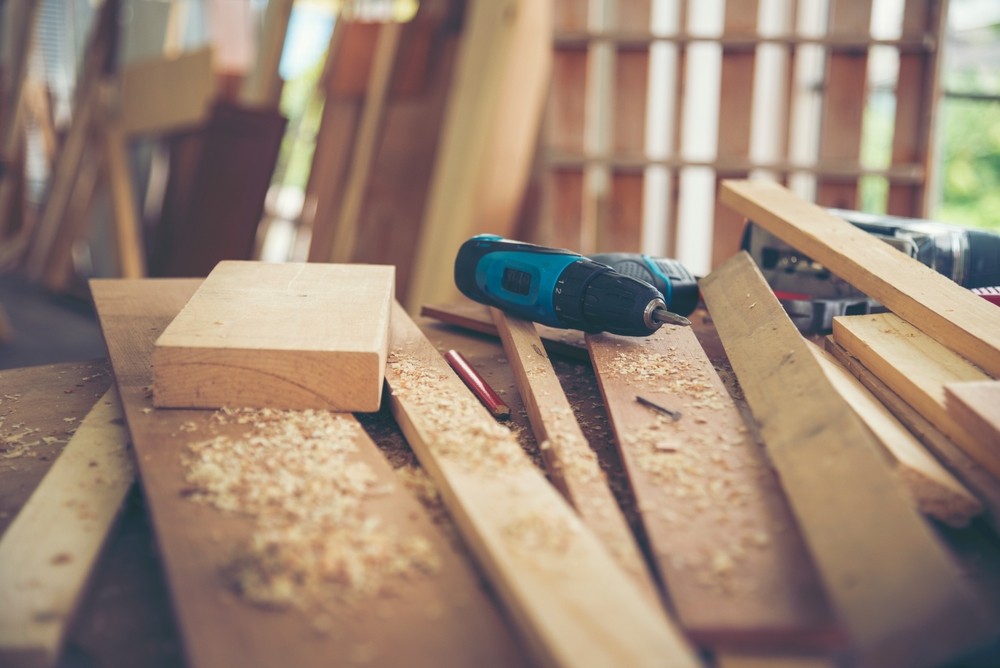Most homeowner’s don’t know that there are many home improvement grants available that can significantly alleviate the financial burden of a home renovation. These grants are designed to support homeowners and prospective homebuyers who need financial assistance for renovations, ensuring safe, habitable, and energy-efficient living conditions.
Understanding Home Improvement Grants
Home improvement grants are government-funded programs that provide financial support for renovations. Unlike loans, these grants do not need to be repaid, rendering them an attractive option for those looking to improve or repair their homes without taking on additional debt. However, eligibility requirements can vary, depending on factors like household income, location, and the nature of the home improvements.
Types of Home Improvement Grants
Various home improvement grants cater to different needs, from energy efficiency upgrades to accessibility improvements for disabled individuals. Here are some categories you might consider:
- Energy Efficiency Grants: With global calls for reduced carbon footprints, many governments offer programs aimed at increasing energy efficiency in homes. These may cover installing solar panels, upgrading insulation, or replacing old appliances with energy-efficient models.
- Emergency Repair Grants: These grants typically cover critical repairs that affect the safety and habitability of a home. For example, fixing structural issues, faulty wiring, or broken heating systems may be covered under this grant category.
- Accessibility Grants: Specifically for individuals who are disabled or elderly, these grants can fund ramp installations, bathroom modifications, and other changes to make homes more accessible.
- Community Development Block Grants (CDBG): Offered at the local government level, these grants focus on broader community revitalization projects that might include improving housing quality in low- and moderate-income neighborhoods.
Qualifying for a Home Improvement Grant
Eligibility for these grants largely depends on several factors. Most programs have specific guidelines related to income, property condition, location, and type of improvements allowed. Understanding these requirements can aid you in the application process:
- Income Requirements: Many grants are income-based and aim to support low- to moderate-income households. Providing documentation of your household income is usually a prerequisite.
- Property Location: Some grants are limited to certain geographic areas, often where governments have identified a need for community or housing improvements.
- Specific Needs: Programs targeted towards specific improvements, such as energy efficiency, may require an assessment of your current efficiency levels or a plan for proposed upgrades.
- Occupancy Status: Grants are often available to those who reside in the property full-time, although some programs might extend to landlords of rental properties, depending on location and funding rules.
Federal Home Improvement Grants in the U.S.
In the United States, several federal programs offer home improvement grants aimed at supporting a range of housing needs. Here are some notable options:
- Rural Housing Repair Loans and Grants: Also known as Section 504 Home Repair Program, these funds are available to very low-income homeowners in rural areas to repair, improve, or modernize their homes. It offers grants to homeowners aged 62 and older who can’t afford the expenses through loans.
- Weatherization Assistance Program: This federal initiative focuses on improving energy efficiency for low-income households, thereby reducing energy costs. Improvements may include better insulation and more efficient heating/cooling systems.
- Home Investment Partnerships Program (HOME): This is a block grant program that offers funds to state and local governments to create affordable housing initiatives, which may include home improvement grants for eligible homeowners or developers.
- VA Specially Adapted Housing Grant: For veterans, the VA offers grants to assist in the purchase, construction, or renovation of homes to accommodate service-related disabilities.
State and Local Government Funds
Aside from federal options, many state and local governments in the U.S. provide additional grant programs. These programs often have more localized objectives, focusing on needs that are particularly pressing in specific regions:
- State Energy Sector Partnerships: Many states have partnerships set up to promote energy conservation at the local level. These would help fund improvements that make homes more energy-efficient.
- Local Grants for Community Development: These grants are oriented towards community enhancement projects and may include housing upgrades. Eligibility requirements can be based on neighborhood income levels or property conditions.
- Targeted Municipal Grants: Some cities offer grants to repair older homes in historic districts, aligning with wider community revitalization efforts. These are often time-sensitive and require significant documentation and planning.
Applying for a Home Improvement Grant
The application process for home improvement grants commonly involves several steps, including providing detailed plans and estimates for the proposed improvements. To enhance your chances of approval, consider the following tips:
- Start with Research: Thoroughly research available grants to ensure a good fit with your needs and circumstances. Look at eligibility criteria, deadlines, and required documentation.
- Prepare Documentation in Advance: Compile necessary documents, such as proof of income, property deeds, and estimates for proposed work, early in the process to prevent delays.
- Consult with Professionals: Professionals, like grant advisors or community development offices, can offer guidance and help streamline complicated application processes.
- Draft a Detailed Plan: Many grants require a clear and detailed proposal outlining how the funds will be used, including itemized budgets and timelines. Precision here can make a significant difference in the success of your application.
- Follow Up: After submission, it’s important to follow up on your application to ensure that it is being processed and to address any additional requirements or questions that may arise.
Leveraging Additional Resources
While grants are a fantastic way to obtain funding for home improvements, they often need to be supplemented with other forms of financial aid or personal savings, especially for large-scale projects:
- Combining Grants and Loans: If a grant covers part but not all of your intended improvements, consider pairing it with a low-interest home improvement loan to cover the shortfall.
- Tax Credits and Rebates: Look into state or federal tax credits and rebates for specific improvements like energy-efficient installations, which can further reduce the financial burden.
- Non-Profit and Private Organizations: Some non-profit organizations and private companies offer funding, usually as part of broader community improvement or environmental initiatives.
Understanding and leveraging home improvement grants can offer significant financial relief and make your renovation dreams achievable without adding a financial burden. By exploring the types of grants available and following a meticulous application process, you can bring your home improvement plans to fruition in an effective, economically savvy way. Whether you aim to improve energy efficiency, address structural issues, or enhance accessibility, there is likely a grant—or combination of funds—that can be tailored to your needs, ensuring both your home and finances are in good shape.



